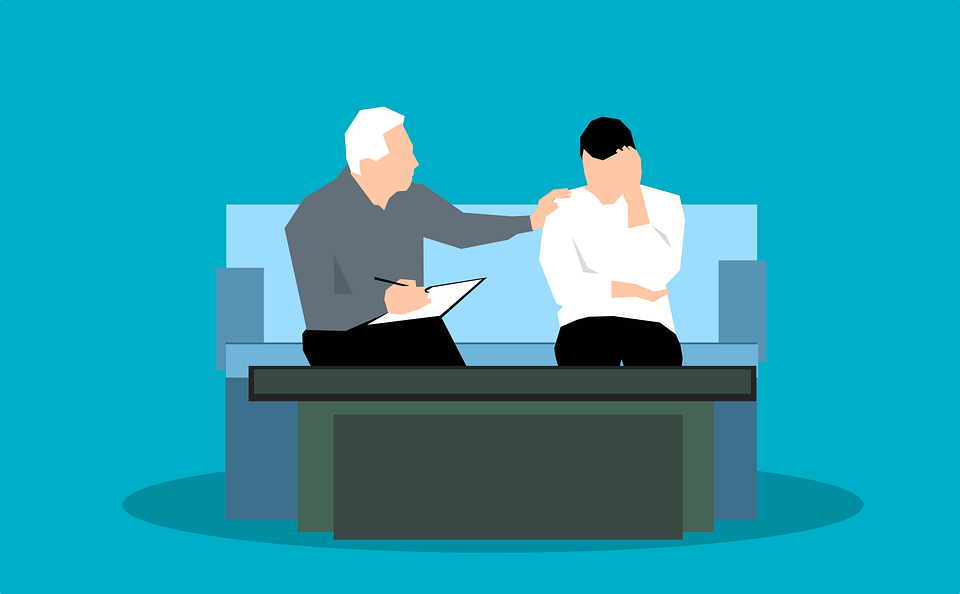The Role of Counseling and Rehabilitation in Overcoming Trauma

Trauma is painful and can have lasting effects on mental health. For many people escaping their trauma can often lead them to dangerous paths. People start abusing drugs, thinking of suicide, or even start having unprotected sex. Our methods of dealing with stress and trauma may baffle us. However, we must get timely help whenever we go through traumatic incidents. If you know someone or are going through trauma yourself, we are here for you. It would be best if you had professional help, and here’s why only licensed professionals should be allowed to help you:
- Walk You Through Your Trauma
Trauma is not easy to deal with. Days can pass by without you realizing what you’re going through. It can arise due to many reasons. For instance, you may have witnessed something emotionally wrecking, or you went through abuse.
Rehabilitation counselors help people with developmental disabilities, mental illnesses, and other physical or emotional conditions live more independent lives. In some cases, you may stop eating, drinking, or even sleeping. Your counselor will gently talk about what made you into who you are. Their purpose is not to attack or guilt trip you instead to help you understand. If you’re wondering, what does a rehabilitation counselor do? The answer lies in their ability to help people with disabilities manage challenges to working and living independently.
- Help With Problems In Sleeping
Trauma can prevent you from sleeping correctly. You may get night terrors and even awake from a sudden jolt. Your mind at night may be working in total capacity sending you images that keep you awake. So when you lie down to rest, a counselor will guide you through sleep. Hypnotherapy is a widespread technique where the counselor will walk you through your sleep. They’ll make sure you’re in a comfortable position and will not hurt yourself if you suddenly get scared. The counselor will ask a series of questions to make you rethink how you imagine scenarios. They ask you to grab something in your sleep or make you confront what you see, all to make you feel strong again. By the time you wake up, you may start feeling less scared about the images you see. You may get a few more sessions before a counselor thinks you’re safe to go home and sleep.
- Get You Off Drugs and Alcohol
If you’re going through trauma, the chances of you consuming drugs and alcohol are high. You may end up taking more than you need causing yourself a severe case of addiction. Drugs and alcohol are dangerous. They think away your ability to feel and think. Sometimes they do the opposite; they can make you hallucinate and impair your judgment. If you’re traumatized and addicted, the chances of you hurting others is high. A counselor will keep monitoring you and never once make you feel abandoned or lost. You’ll get safe medicines to help you deal with withdrawals, and the attending counselor will always be there at your arm’s reach. The counseling will help change how you think as you try recovering from the drugs and alcohol you’re consuming. Ultimately you’ll feel safe enough to go back home and not crave substances. The first few months are fragile, so make sure you arrange for help and not try recovery independently.
- Help You Cope Emotionally
If your emotional well-being is in shambles, you’ll be in chaos too. The point of putting you through a counselor is to help you cope with your thoughts better. You may feel emotionally vulnerable due to your trauma. You may want to hurt yourself or others and neglect your well-being because of what you went through. A counselor will gently talk to you about your emotional health. They will explore the different nuances of your trauma, trying to figure out the cause of stress. If you went through an ordeal that was not your fault, your counselor would help you deal with the guilt. Similarly, they will provide you with coping mechanisms that will help you identify emotional distress and how you can prevent it from consuming you. Methods may include stress breakers and how to avoid feelings of intense isolation from taking over you.
- Help With Eating Disorders
Eating disorders can get painful. If you’re using substances coupled with rejecting food, your body will be a mess. Counselors will help you understand the importance of a well-thought-out diet. They won’t force you to eat more than you have to, but they’ll help you supplement your diet. Your counselor will not advise you to consume full meals until you’re able to digest more than you can take. Some leading eating disorders are anorexia and bulimia. These cases are fragile to work with and need extensive help. You won’t start eating correctly right away, so you’ll need as much help as you can get. The counselor will help you take supplements that are easy to digest. You’ll have no trouble gradually building an appetite. If they feel you need tube feeding, you may get tubes to help you out. You may need to keep a food diary to ensure you’re eating and drinking correctly. The process is gradual, but once your counselor can help you with your eating disorders, it will help you deal with your trauma.
- Help You Through Sexual Trauma
Some people may have trauma due to a very horrible intimate experience. Your counselor will help you develop a better relationship with your partner. Some people use intimacy as a tool to escape the thoughts in their heads, while some completely reject it. The topic of sex is complicated. The counselor will need to figure out your sexuality and help you find ways to understand yourself better. You may get addicted to sex as a way to cope with what you went through. A counselor will slowly help you monitor your health and your symptoms. They may advise you on behavioral techniques that can help you calm yourself and keep you from slipping into addiction. These are important because you wouldn’t want STDs added to your list of traumatic issues.
Wrap Up
Trauma is not an easy topic to discuss. It can make you feel like you lost everything and lose your sense of purpose in life. However, there is help for you in case you go through trauma. A counselor at the rehab and private facility is here to walk you through and guide you better. You will get a chance to make peace with what you went through, including confronting your thoughts. Even if you’re not at peace with what you went through, you have a better outlook towards yourself and the pain you feel. It is why when you’re struggling, always seek professional help. You never know what clicks and saves your life.




